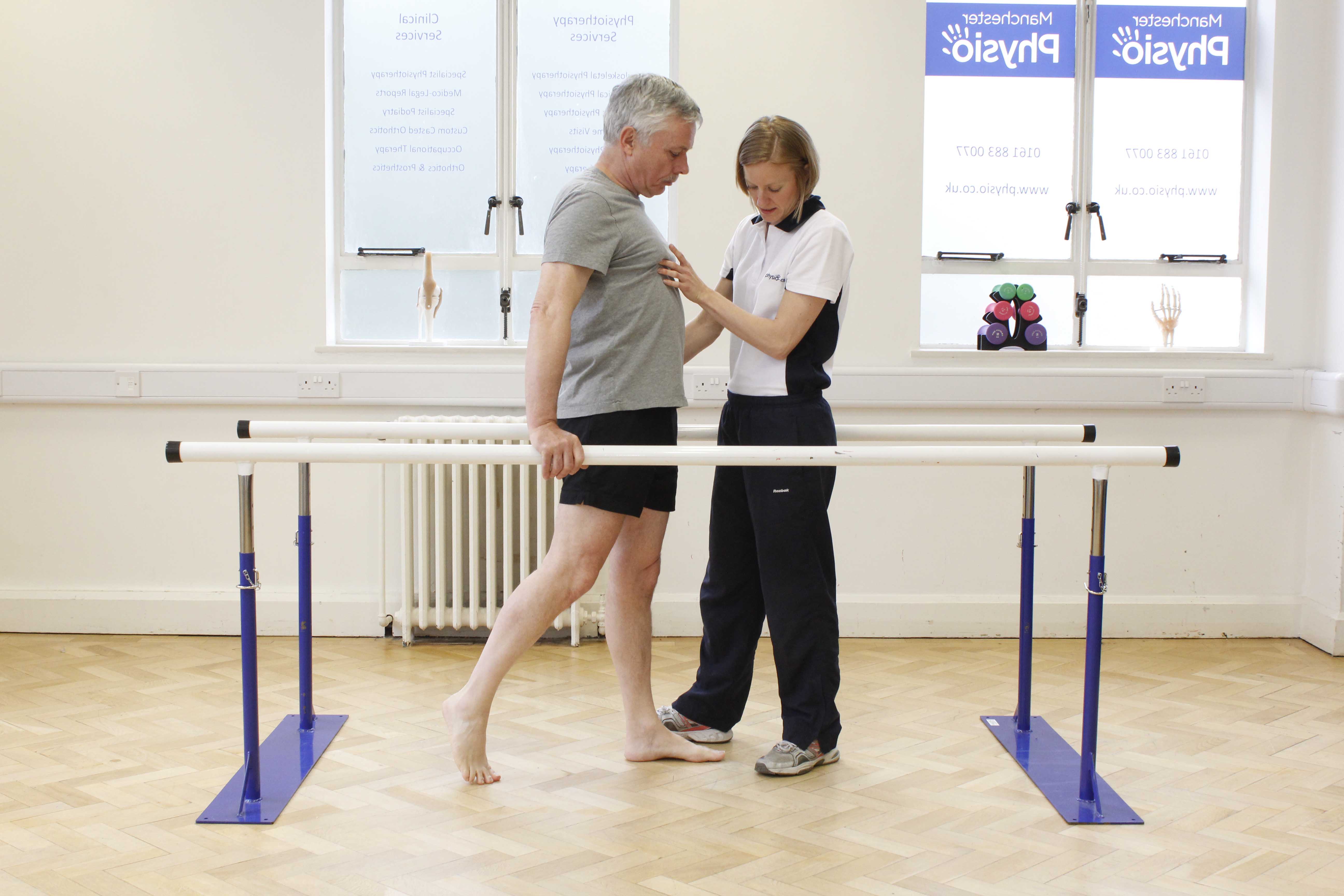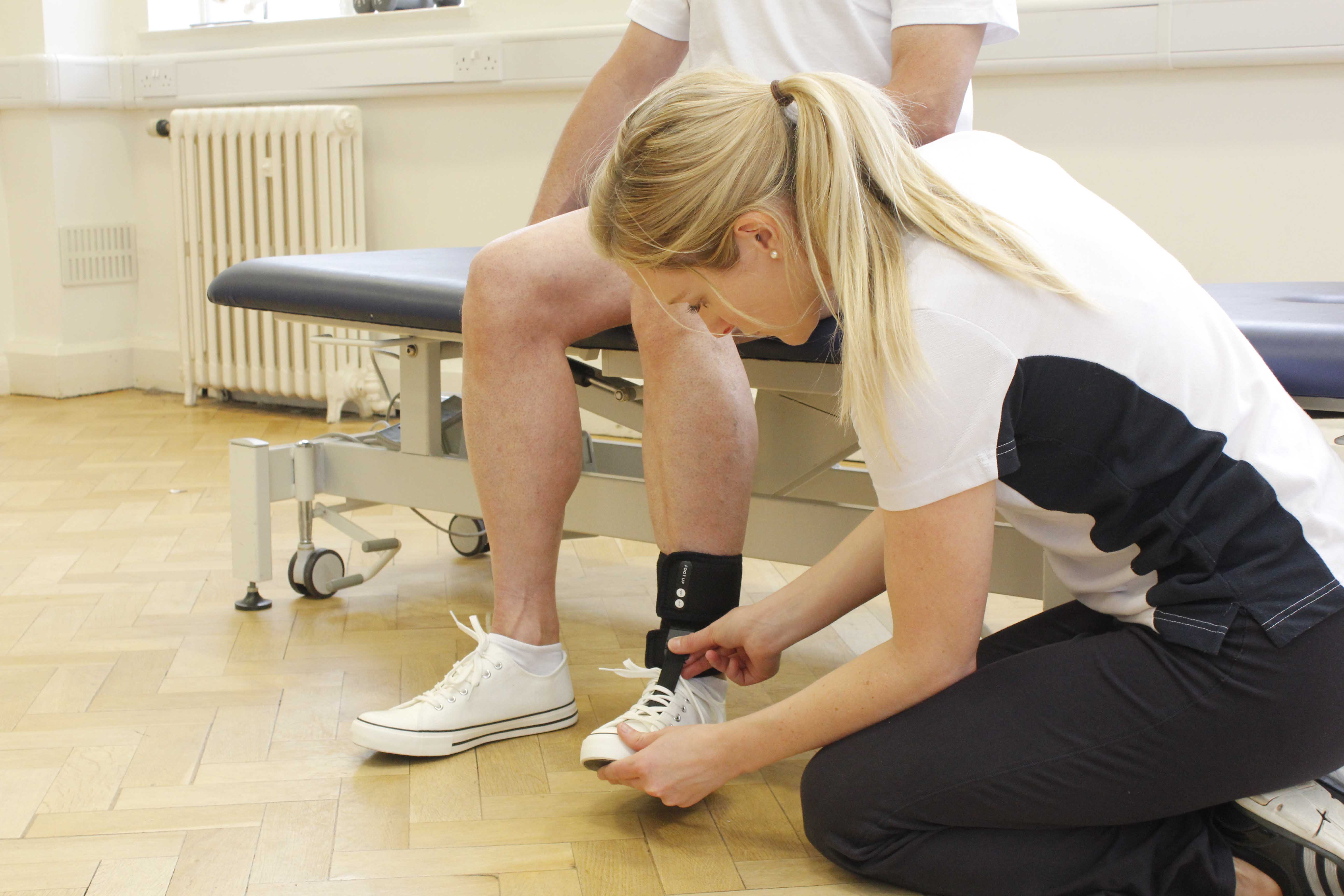Symptoms of Parkinson’s disease
The symptoms of Parkinson’s disease include rigidity, stiffness, tremor and slowness of movement. Often, individuals present with a flexed posture, postural instability and a shuffling walking pattern. Family may notice a mask-like facial expression and a shaking of the arms and legs. These problems can result in a difficulty to carry out normal activities of daily living and to walk around the home safely. Secondary problems that may arise as a result of Parkinson’s disease include changes to sensation, voice, behaviour, thinking and sleeping.
 Above: Mobilisation and queing techniques to overcome parkinson freezing symptoms
Above: Mobilisation and queing techniques to overcome parkinson freezing symptomsCauses of Parkinson’s disease
It is not known exactly why cells in the brain stop producing the chemical dopamine but it is thought that a small number of cases can be attributed to genetic causes. The lack of dopamine in the brain affects the sending of the nerve impulses causing motor and cognitive problems.
Diagnosis of Parkinson’s disease
Parkinson’s disease is diagnosed based on the symptoms and a neurological examination. Computed tomography (CT) and magnetic resonance imaging (MRI) brain scans usually appear normal but may be necessary to rule out other causes of the symptoms.
Treatment of Parkinson’s disease
There is no cure for Parkinson’s disease. However, the symptoms and difficulties that individuals with Parkinson’s face can be effectively managed with medication and rehabilitation delivered by a multi-disciplinary team.
Physiotherapy for Parkinson’s disease
The focus of physiotherapy for the individual with Parkinson’s disease is to improve the patient’s quality of life. Following a detailed physiotherapy assessment, a treatment plan may include:
- Walking re-education – speed, distance, quality
- Postural stability exercises
- Muscle strengthening
- Range of movement stretches
- Transfer practice – sit to stand, in and out of bath
- Stairs, steps practice
- Relaxation techniques
- Breathing exercises
- Provision of recommended aids and equipment
- Diet and lifestyle advice
Individuals with Parkinson’s disease may have difficulty carrying out personal care and domestic activities due to shaking hands or a tremor. Your experienced physiotherapist can assess problematic tasks such as getting washed and dressed or cooking a simple meal and provide aids and appliances which will help. It may be useful to have an assessment from an occupational therapist if you require major adaptation to your home such as a through floor lift or stair lift.
There are many advantages of having regular physiotherapy treatment with Physio.co.uk. The benefits of physiotherapy for the individual with Parkinson’s disease are:
- Reduced risk of falls
- Improved walking pattern with/without walking aid
- Increased mobility
- Increase independence with functional activity
- Increased muscle strength
- Increased confidence
- Improved postural stability
- Learn exercises to do at home with family/carers
 Above: Ankle orthotic used by Physiotherapist to prevent foot drop during mobilisation
Above: Ankle orthotic used by Physiotherapist to prevent foot drop during mobilisationWhy Physio.co.uk for Parkinson’s disease
At Physio.co.uk, we understand that the symptoms of Parkinson’s disease such as a tremor and shuffling walking pattern can significantly impact on your quality of life. Our specialist physiotherapists are able to provide expert treatment to improve your mobility, balance and ability to be as active as possible.
- No waiting lists
- Treatment at any stage of Parkinson’s disease
- Treatment at home, in clinic or in care home
- Caring, experienced physiotherapists
- Access to hydrotherapy
- Access to gym equipment
- Provision of home exercise program
- Flexible appointment times

 0330 088 7800
0330 088 7800

































